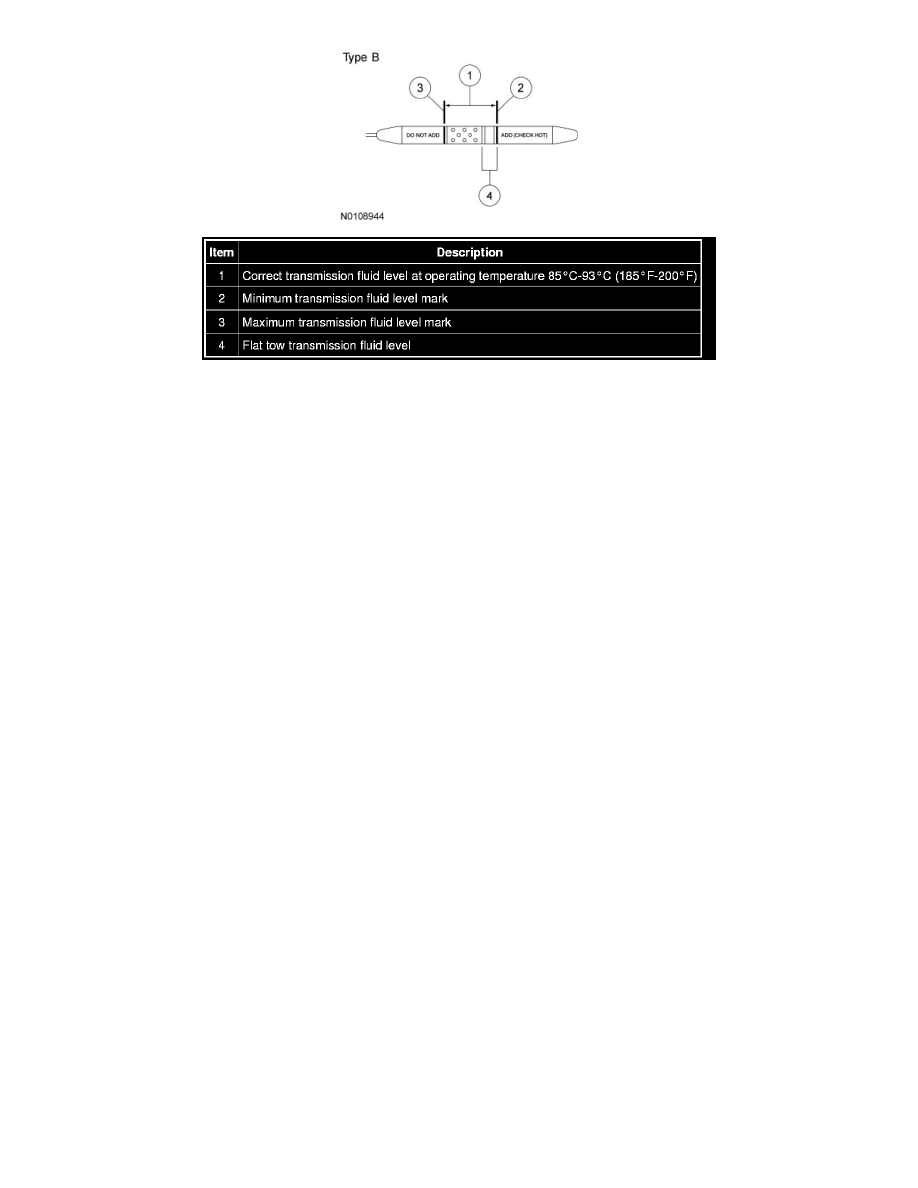Fusion FWD L4-2.5L Hybrid (2010)

High Transmission Fluid Level
A transmission fluid level that is too high may cause the transmission fluid to become aerated due to the churning action of the rotating internal parts.
This will cause erratic control pressure, foaming, loss of transmission fluid from the vent tube and possible transaxle malfunction and/or damage. If an
overfill reading is indicated, refer to Automatic Transmission/Transaxle &/or Transmission Control Systems.
Low Transmission Fluid Level
A low transmission fluid level could result in poor transaxle engagement, slipping, malfunction and/or damage. This could also indicate a leak in one of
the transaxle seals or gaskets.
Adding Transmission Fluid
NOTICE: Automatic transmission fluids are not interchangeable. The use of any fluid other than what is recommended for this transaxle will
cause transaxle damage.
If transmission fluid needs to be added, add transmission fluid in 0.25L (1/2 pt) increments through the transmission fluid level indicator tube with the
selector lever in PARK and the engine idling. Do not overfill the transmission fluid. For transmission fluid type, refer to the material chart.
Flat Tow Fluid Level
Recreational flat towing of the vehicle may require the transmission fluid to be set to a lower fluid level. This will prevent damage to the transmission.
The transmission fluid level is within the normal operating range and will not require the transmission fluid level to be readjusted after recreational
towing.
Transmission Fluid Condition Check
1. Check the transmission fluid level.
2. Observe the color and the odor. The color under normal circumstances should be a dark red color, not brown or black or have a burnt odor.
3. Hold the transmission fluid level indicator over a white facial tissue and allow the transmission fluid to drip onto the facial tissue and examine the
stain.
4. If evidence of solid material is found, the transmission fluid pan should be removed for further inspection.
5. If transmission fluid contamination or transaxle failure is confirmed by the sediment in the bottom of the transmission fluid pan, repair the
transaxle and clean the transmission fluid cooler tubes and the transmission fluid cooler.
6. If the transaxle is to be overhauled or if installing a new transaxle, the transmission fluid cooler must be backflushed. Refer to Automatic
Transmission/Transaxle &/or Transmission Control Systems.
